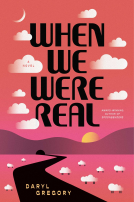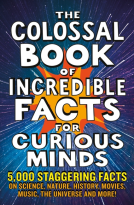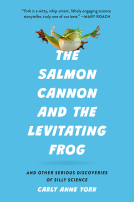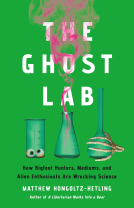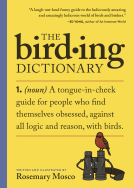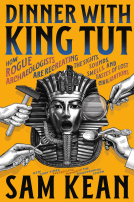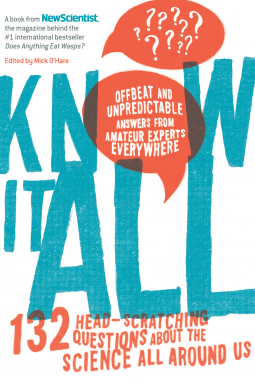
Know It All
132 Head-Scratching Questions About the Science All Around Us
by
This title was previously available on NetGalley and is now archived.
Send NetGalley books directly to your Kindle or Kindle app
1
To read on a Kindle or Kindle app, please add kindle@netgalley.com as an approved email address to receive files in your Amazon account. Click here for step-by-step instructions.
2
Also find your Kindle email address within your Amazon account, and enter it here.
Pub Date Feb 24 2015 | Archive Date Feb 09 2015
Experiment, The | The Experiment
Description
New Scientist magazine’s beloved “Last Word” column is a rare forum for “un-Google-able” queries: Readers write in, and readers respond! Know It All collects 132 of the column’s very best Q&As. The often-wacky questions cover physics, chemistry, zoology and beyond: When will Mount Everest cease to be the tallest mountain on the planet?If a thermometer was in space, what would it read?Why do some oranges have seeds, and some not?Many people suffer some kind of back pain. Is it because humans haven’t yet perfected the art of walking upright? And the unpredictable answers showcase the brainpower of New Scientist’s readers, like the anatomist who chimes in about back pain (“Evolution is not in the business of perfecting anything.”) and the vet who responds, “Quadrupeds can get backache too!”
Available Editions
| EDITION | Other Format |
| ISBN | 9781615192397 |
| PRICE | $14.95 (USD) |
Average rating from 20 members
Featured Reviews
 Bassocantor ., Reviewer
Bassocantor ., Reviewer
KNOW IT ALL is a really fun read. Most of the material in this book came from the column called, "Last Word" in the New Scientist magazine. I found it best to skip around, trying out different sections of interest, rather than trying to read this book page by page.
In these brief responses from readers, I actually learned quite a bit. For example, I vaguely knew a little bit about what causes Earth's magnetic field, but I didn't really know the specifics. Courtesy of an engineer in Australia, we actually find out what really causes the magnetic field. Simon Iverson explains that "Earth's magnetic field is believed to be generated by electric currents and its molten core, which is mainly iron. These electric currents are formed by convection currents of radioactive heat escaping from the core."
That's the beauty of this book. You get to hear from really knowledgeable people from around the earth.
Well okay, I guess what's in Earth's core is perhaps not all that practical in everyday life. But here is one that I found even more interesting. In the section called, "Pulling Power" the reader discovers more about the principal called escape velocity. One reader wonders if a rocket power device has enough thrust to left its weight, can it make it to space? In answer, a reader in the United Kingdom explains that the concept of escape velocity "applies only to unpowered projectiles, not powered rockets. Unfortunately the definition of escape velocity given in many textbooks do not make this clear."
My favorite section of all is in the article called "Moon Flight." One reader wonders if he could jump high enough sort of like an Olympic high jumper, could he jump right off the moon?
A brainy scientist in the United Kingdom explains that you would actually have to achieve escape velocity in order to jump off the moon. So since your body is not really independently powered in outer space, this is not going to happen.
It appears to me that the majority of the really smart answers in this book come from the United Kingdom. How can this be? Is this discrimination against the Americans? Are they really so much smarter than us? Or is it perhaps that the Brits have too much time on their hands, and thus enjoy exploring questions such as high jumpers escaping moons orbit? I guess we will never know; however, I'm going to post that question for the next edition. Maybe some brainy person knows the answer.
All in all, KNOW IT ALL is really a fun book to read. It's not only entertaining, but educational as well. Especially if you're interested and escape velocity, and whether you can jump high enough to jump right off the moon. I had no trouble whatsoever with my Kindle edition. There is also a very nice appendix at the rear of the book.
Readers who liked this book also liked:
Nigel Henbest; Simon Brew; Sarah Tomley; Ken Okona-Mensah; Tom Parfitt; Trevor Davies; Chas Newkey-Burden
Entertainment & Pop Culture, Humor & Satire, Nonfiction (Adult)
